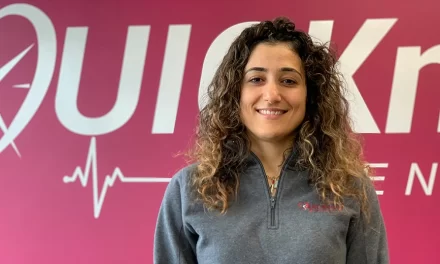Muzzammil Riaz is a registered nurse, mental health advocate, and the founder of Trust The Process, a digital platform focused on holistic wellness, resilience, and self-growth. Drawing from his experiences in high-pressure hospital environments, Muzzammil shares real-world insights on overcoming burnout, managing stress, and embracing the journey of healing, both physically and mentally. His mantra, “healing isn’t linear,” is reflected in the honest, empowering content he produces across platforms like Medium, WordPress, and Substack. Beyond nursing, Muzzammil is a dedicated fitness enthusiast who believes in the powerful connection between physical health and emotional well-being. He is committed to breaking down societal stigmas around men in healthcare and mental health conversations, using his voice to inspire vulnerability and strength. A consistent academic achiever with multiple Dean’s List honors, he blends education with empathy to connect with a diverse audience. His philanthropic work includes funding over seven water wells in underserved regions through the Paani Project and organizing community-driven fundraising efforts on LaunchGood and GoFundMe. Whether he’s working a night shift, sharing wellness strategies online, or lifting weights at the gym, Muzzammil’s message remains clear: progress over perfection, and always, #KeepGoing.
How have your personal experiences shaped your mission with Trust The Process and your work as a nurse?
My journey into healthcare and wellness has been deeply personal. As a nurse, I’ve faced the emotional weight of loss, the pressure of high-stakes decisions, and the fatigue that comes with long shifts. These moments taught me that healing isn’t always clinical – sometimes, it’s about being seen and heard. That understanding inspired Trust The Process, where I share stories, strategies, and support for those navigating life’s most challenging stretches. My struggles gave me compassion; they taught me that proper care goes beyond charts and checklists.
What are the values that guide your work both in the hospital and on your platform?
Compassion, authenticity, and resilience. Whether I’m bedside with a patient or writing an article, I aim to show up as my full self. That means leading with empathy, being honest about setbacks, and encouraging others to keep pushing forward. I also value representation – as a man in nursing and a vocal mental health advocate, I want to normalize care, vulnerability, and strength all existing in the same space.
Burnout is common in healthcare. How do you protect your mental and physical health while staying committed to helping others?
I learned the hard way that you can’t pour from an empty cup. I prioritize sleep, fitness, and mindfulness, not just for performance but for survival. I treat self-care like a responsibility, not a luxury. Journaling, therapy, and movement help me reset. Community is crucial. Having people who understand the work and the emotional toll makes a world of difference. I also set boundaries, especially with social media, to stay grounded in real life.
Can you share a challenging moment in your nursing career and how it influenced your approach to care?
I remember losing a young patient despite doing everything right. It shook me. I started questioning my choices, my competency, everything. But it was also the moment I realized that care doesn’t always mean cure. Sometimes, showing up consistently, with honesty and heart, is the most powerful thing you can do. That moment shaped my philosophy: we don’t always have control over outcomes, but we can control how we show up.
How does your fitness journey intersect with your message of mental health and healing?
For me, fitness isn’t just about aesthetics, it’s therapy. Lifting weights taught me discipline and presence. It became a space to process emotions, release stress, and rebuild confidence. I see fitness as a metaphor for healing: progress isn’t always visible day to day, but over time, the effort adds up. I encourage people to move not just for their bodies but also for their minds. You don’t need to be perfect, just consistent.
What role does writing play in your advocacy work?
Writing is where I process, connect, and educate. It allows me to break down complex health issues in ways that feel human. I use platforms like Medium and Substack to reach people who might be suffering in silence, unsure of where to start. My goal is always to meet readers where they are, with honesty, empathy, and actionable advice. If someone finishes a piece feeling less alone or more equipped to take a small step forward, I’ve done my job.
How do you approach the stigma surrounding men in nursing and mental health?
By being visible, vulnerable, and vocal. I’ve had people message me saying they’d never seen a male nurse talk openly about burnout, therapy, or emotional fatigue. That’s the problem. We need more examples of strength that include softness. I want to challenge the idea that men have to suppress their struggles to be seen as capable. True strength is showing up with your humanity, not in spite of it.
Your charitable work is impressive. What drives your philanthropic efforts, especially with initiatives like the Paani Project?
Service is the heartbeat of everything I do. I’ve been blessed with opportunities, so giving back is my way of staying grounded and paying it forward. The water wells I’ve funded through the Paani Project are a small way to create a long-term impact. Clean water shouldn’t be a privilege. It’s a fundamental right. I hope to use whatever platform I have to spotlight real needs and inspire others to act.
What’s next for Trust The Process? Any new projects on the horizon?
I’m expanding the platform to include live workshops, digital courses, and more interactive content focused on holistic wellness. I’m also working on a book that weaves together stories from the frontlines of healthcare, personal growth, and healing. Long-term, I hope to create a community space, both online and offline, where people can connect, learn, and heal together.
What keeps you motivated during difficult times?
The people. The messages I get from readers, patients, or strangers saying, “Your story helped me keep going,” that’s everything. And my own mantra, #KeepGoing, is more than a phrase. It’s a reminder that hard times are part of the process, not the end of the road. Even when I’m tired, that purpose keeps me moving. Healing is never a straight line, but it’s always worth it.




